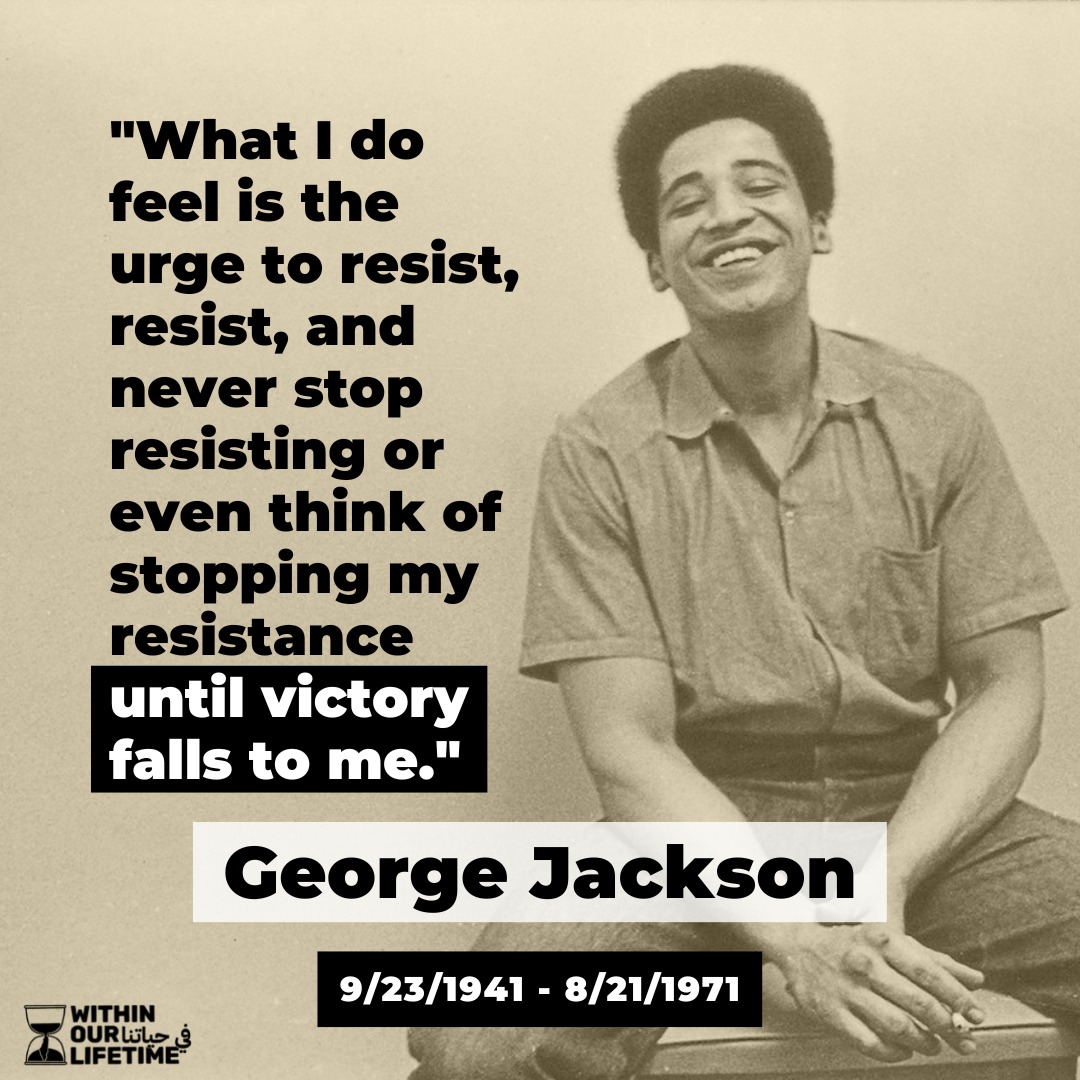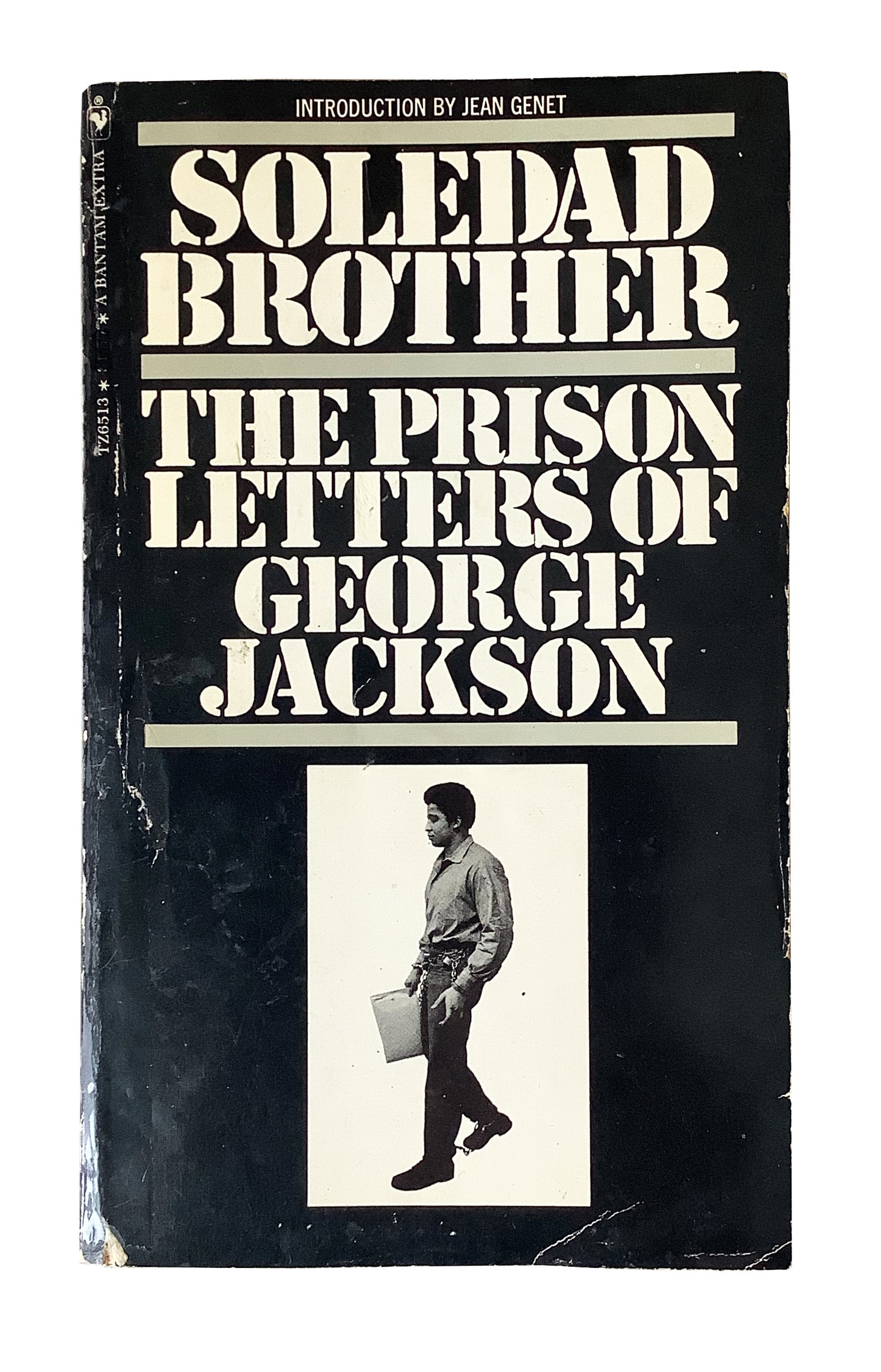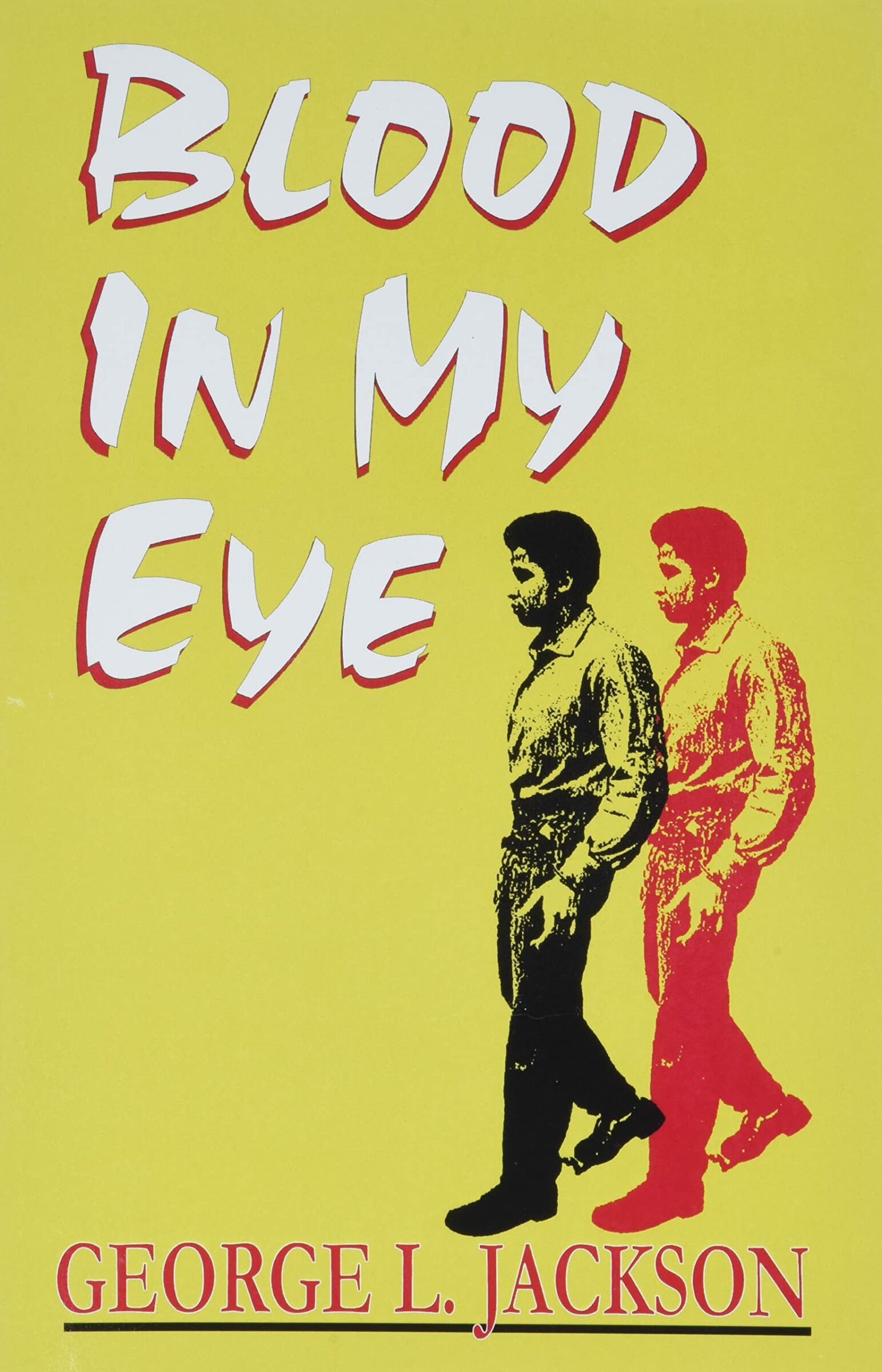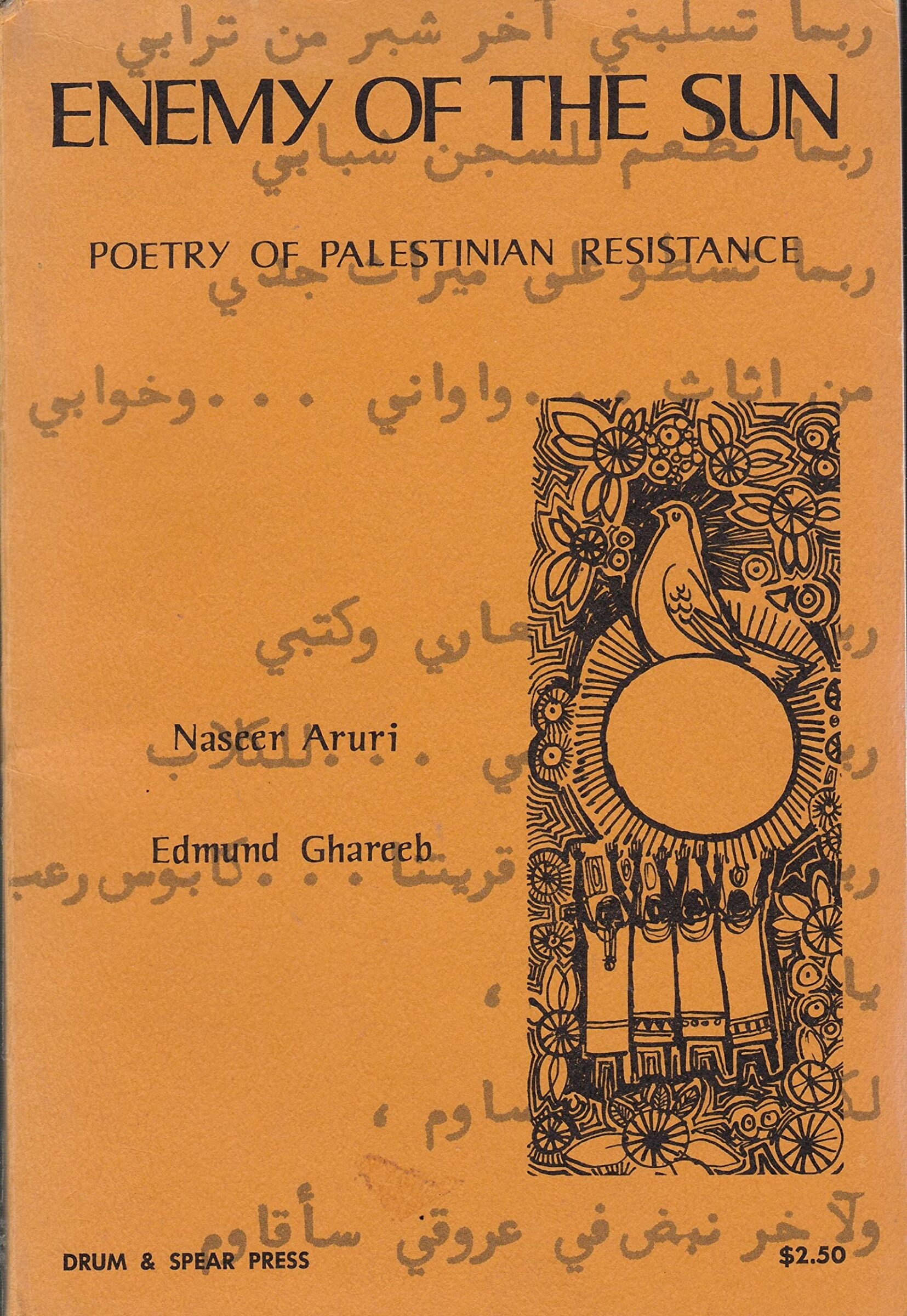
Today we honor George L. Jackson — Black Panther Party leader, communist revolutionary, freedom fighter, political prisoner and writer — on the 51st anniversary of his martyrdom, August 21st, 1971. In 1960, at the age of eighteen, Jackson was accused of stealing $60, charged and sentenced to 1 year to life in prison. He would go on to spend the rest of his life behind bars, becoming politicized on the inside through his studies, and later joining the Black Panther Party. After joining the Party, he was appointed Field Marshal and tasked by Huey P. Newton with building and leading the party’s prison chapter in San Quentin.
Jackson published his first book “Soledad Brother,” a collection of his prison letters, in 1970. A year later, he was murdered by the California Department of Corrections when he was shot and killed by prison guards. The day after his assassination, eight hundred incarcerated people in Attica, NY responded in solidarity by wearing a black armband and refusing to eat the entire day. A month later, they would launch the Attica Rebellion.



Following his death, his second book, “Blood In My Eye” was released posthumously. While Jackson remained incarcerated in California for the last eleven years of his life, he traveled the world through his study of language, which included Arabic, Chinese and Swahili, and his study of literature, revolutionary history and theory. Following the publication of “Soledad Brother,” his writings also began traveling the world, and have been ever since.
In the aftermath of Jackson’s death, the San Quentin prison authorities searched his cell and inventoried every item, including his personal library which consisted of 99 books. One of those books was “Enemy of the Sun: Poetry of Palestinian Resistance,” an anthology edited by Naseer Aruri and Edmund Ghareeb that was published in 1970.
For Jackson, the struggles of colonized and oppressed people around the world were inextricably linked, with anti-imperialism and internationalism at the core: “The U.S. has established itself as the mortal enemy of all people’s government, all scientific-socialist mobilization of consciousness everywhere on the globe, all anti-imperialist activity on earth. The U.S. is the Korean problem, the Vietnamese problem, the problem in the Congo, Angola, Mozambique, the Middle East.” Half a century later his words continue to ring true.
On the anniversary of George Jackson’s martyrdom, Palestinian political prisoner Khalil Awawdeh, a 40 year old father of four, completed his 172nd day on hunger strike.

“I will continue my hunger strike until I gain my freedom.”
“I have sacrificed a lot for the dearest and strongest need, freedom. My abstinence from food is not a rejection of life, but rather a rejection of chains.”
These were Khalil’s words on August 19th during his first interview since he began his hunger strike in protest of his definite detention without charge or trial nearly six months ago. Today, August 21st, marks Khalil’s 172nd day on hunger strike, with the threat of organ failure and death imminent.

As Khalil continues to fight for his life and his freedom, we join Palestinians and people of conscience around the world in demanding his immediate release and freedom for ALL political prisoners, from Palestine to the U.S.
Fifty one years after his death we honor George Jackson and all of the martyrs of the Black liberation struggle in the U.S. and the Palestinian liberation struggle and echo George’s words, who said what needed to be said plainly, for all to understand:
“What I do feel is the urge to resist, resist, and never stop resisting or even think of stopping my resistance until victory falls to me.”
